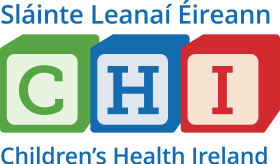Sort that cough without an antibiotic
Winter is packing its bags and the flu season is coming to an end, but we still have to watch out for coughs. Green mucous (phlegm) is produced by inflammation caused by infections.
13 Márta 2020

Virus and bacteria both cause green mucous, so green mucous does not mean you need antibiotics. Most coughs are viral; that means they get better just as fast without antibiotics. You can get unpleasant side effects from antibiotics including tummy upsets, rashes, vomiting, nausea and abdominal pain. You should only take antibiotics if you need them – or they might not work when you do need them. Dr. Nuala O’Connor, a Cork-based GP and Irish College of General Practitioners (ICGP) Lead for Antimicrobial
Resistance says:
“GPs see a lot of coughs at this time of year. Coughing is part of your body’s way of protecting your lungs. It is better to cough up phlegm than to have it stay lower in your lungs. Coughing spreads the germs that caused your cough in the first place, so it is important not to spread the illness to others. You can do this by coughing into a tissue, binning the tissue immediately and washing your hands afterwards or coughing into your elbow. Remember, many people do not follow this advice, so most surfaces like door handles have bugs on them. Be careful to keep your hands away from your face /mouth and always wash your hands before touching or eating food to avoid picking up infections. “
“If your cough is caused by a cold and you need advice, talk to your pharmacist first. Over-the-counter cough remedies may ease your cough and help you to bring up phlegm so that coughing is easier. Paracetamol or ibuprofen will relieve pain. Many people also find that hot honey and lemon drinks are helpful. Antibiotics do not actually ease a cough – they kill bacteria. Rest, drinking plenty of liquids and taking time to allow your immune system to fight the infection are very important.”
“If you have asthma, you are probably already on inhalers. When your symptoms flare you need to follow the management plan you have agreed with your doctor. This usually involves doubling up on your preventer inhaler and taking your reliever inhaler 4 times a day. You may need a short course of steroids, but asthmatics rarely need antibiotics even though they are commonly prescribed.”
“If you are a smoker and have COPD then when you get cold you will notice an increase in cough and phlegm production. Most of these infections are caused by viruses, but you do have a higher risk of developing a bacterial infection that might need antibiotic treatment .The first thing to do is increase your inhalers as per your doctor’s instructions for an acute flare of your COPD. You will often need a short course of steroids too. If you are over 65 or have severe COPD you will reduce your risk of infection if you get a pneumonia vaccine and your annual flu vaccination.”
If your child has a cough but is in reasonably good form and is drinking well, there is often no need to do anything. Your child’s immune system will fight the bug that is causing the cough. If you need advice, talk to your pharmacist. Paracetamol or ibuprofen will relieve pain or fever. If your child is over 6 years of age, they can also take over-the-counter cough remedies. Saline nose sprays can help to clear the nasal passages. Coughing spreads the germs that caused your child’s cough in the first place, so it is important not to pass the germs on to others. Get your child to cough into a tissue, bin the tissue immediately and wash their hands or cough into their elbow.
If you are worried, especially about young children and the elderly, then it’s best to have a face to face consultation with your GP. If your GP tells you your own immune system can fight this infection and you do not need antibiotics then this is good news. It means you don’t have to take any chance of getting antibiotic side effects.
Know the time frame for your cough:
1 – 3 days
Most coughs are caused by colds or flu. They usually come with other symptoms such as a runny nose, fever, sore throat, earache or general aches and pains.
If your cough is a result of a cold or flu, you do not need to see the doctor. There is no quick way of getting rid of a cough. It will usually clear up after your immune system has beaten the bug that is causing it. The simplest and cheapest way to ease a tickly or chesty cough is with any of the common over-the-counter remedies. If you need advice ask your pharmacist.
4 – 7 days
By this stage, many tickly and chesty coughs will start to improve, but sometimes coughs can last longer. You can continue to take over-the-counter remedies if you need them.
7 – 21 days
Your cough should be better by now but if it lasts more than three weeks, you should make an appointment to see your doctor.
For more information on coughs visit the HSE website www.undertheweather.ie
